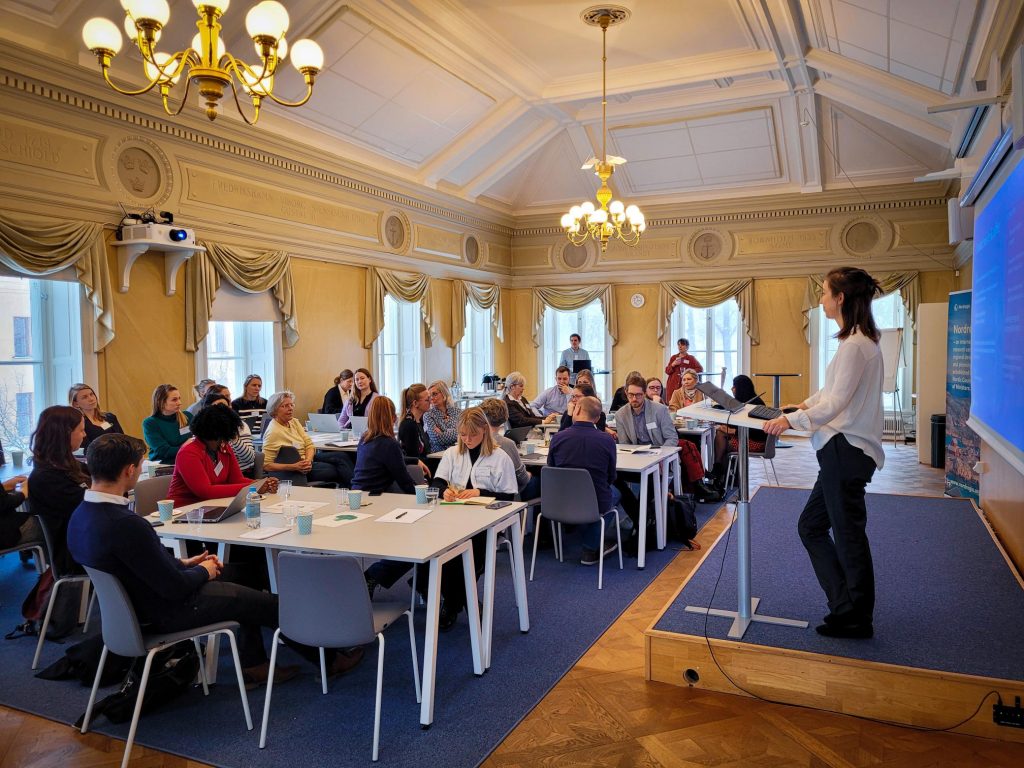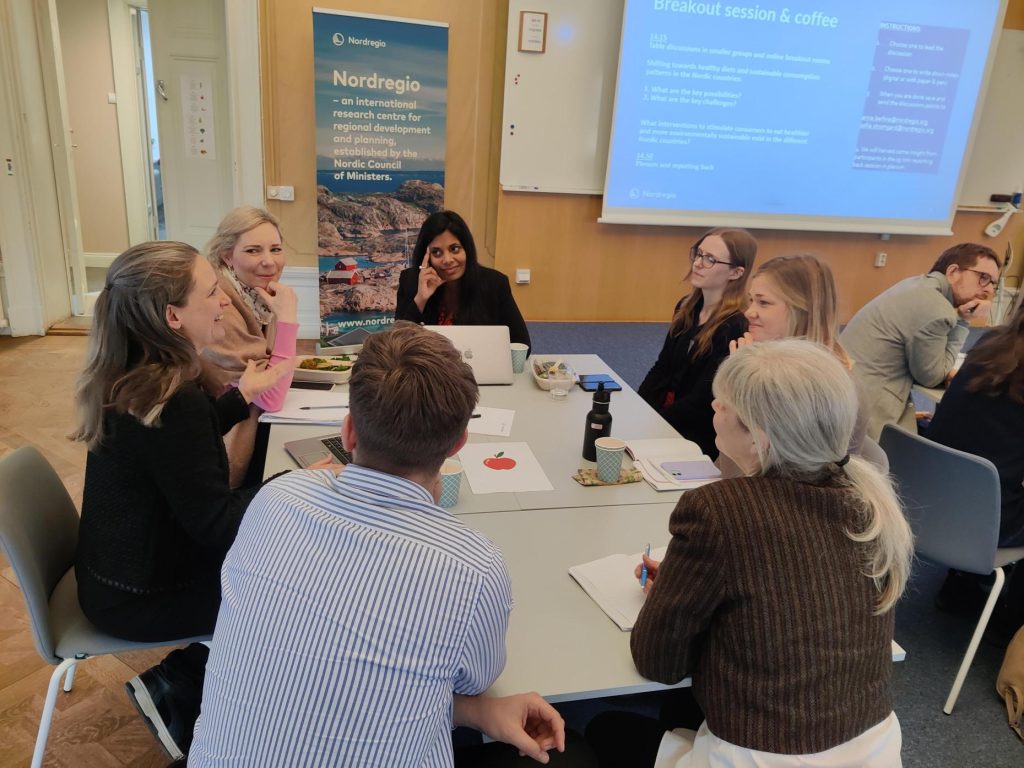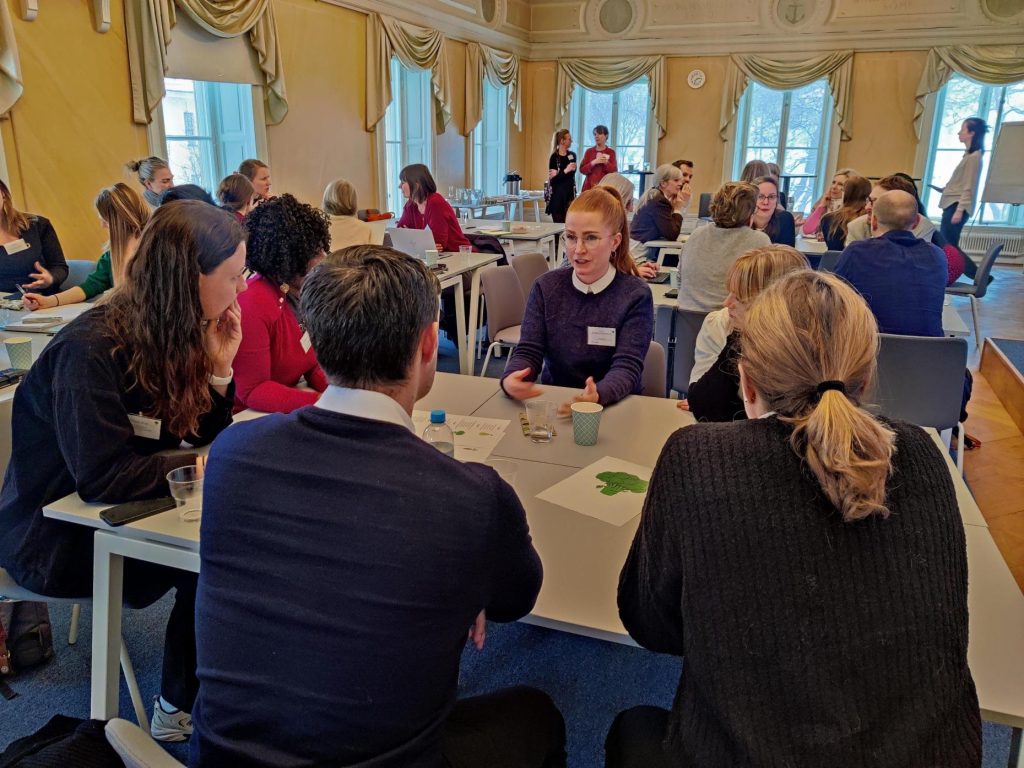We need to eat healthier and more sustainably – we know that. But why is it so hard to change behaviour? This was the topic when nearly 150 professionals gathered for a Nordic workshop to discuss and brainstorm ideas for effective measures to facilitate change, focusing on possible policies that can be implemented to improve food choices and dietary habits.
The interest in the workshop “Behaviour change for sustainable food consumption” was huge and nearly 150 people from all over the Nordics gathered both physically and online to learn and discuss behaviour change in diets.

For one afternoon, the participants could dive into the theme in the company of several speakers: Michael Minter (CONCITO’s Food Program), Therese Lindahl (Beijer Institute of Ecological Economics), Pierre Chandon (European Institute for Business Administration), Minna Kaljonen (Finnish Environment Institute), Alexander Dubois (Formas) and Rasmus Lillelund Lovring and Jeppe Deleuran Kristensen (Aarhus municipality).
Less meat and more plant-based meal options
We are facing several sustainability challenges. Four out of nine planetary boundaries are already crossed: biodiversity, biochemical flows, land use and climate change.
In the future, we must feed more people on less land. The single most important transformation is shifting diets. This was highlighted by Michael Minter from the think tank CONCITO.
The key elements in the food transition are eating less meat and dairy, eating more vegetables and fruits and introducing new plant-based products. The key drivers in the shift are research, education, opinion-building, retail, the food industry and agriculture.
When shifting to more sustainable and healthy diets, we must also focus on a just transition. Minna Kaljonen from the Finnish Environment Institute highlighted that the broad societal changes needed will have significant social, economic and cultural effects. Some changes might seem unfair to the farmers and the consumers.
“The societal discussion space is filled with many demands, fears, and feelings. In agriculture, there is a fear of losing jobs and how the transition will affect production and profitability.”


Pierre Chandon, professor of marketing at the European Institute for Business Administration, talked about actions that nudge people into making healthier food choices.
For example, labelling healthy foods in a supermarket boosts sales but does not affect unhealthy food. The conclusion is that healthy eating is not a knowledge problem. Nudges that try to entice people to select food using other arguments work better.
“Everyone knows eating fruit and vegetables is better than processed food. We should focus on taste, taste, taste, then price and convenience. Not so much the nutrition.”
Chandon argues that we should talk much more about pleasure and focus on marketing healthy food as tasty or “sell healthy food like junk food.”
A study in a university cafeteria showed that when renaming “green beans” to “nutritious green beans,” the sale dropped by 21 percent. When the same beans were named “Sizzlin’ Szechuan Green Beans,” sales rose by 14 percent. This shows that simple marketing affect our choices remarkably.
However, the most effective nudges are the interventions that change how much people eat.
“If you give people much food, they will eat more than if you give them less. Segmenting and cutting food in many slices and pieces is an easy way to make people eat less.”
Policy brief to be published in June
During the workshop, the participants discussed key possibilities and challenges in shifting towards healthy diets and sustainable consumption patterns in the Nordic countries, and existing interventions to stimulate consumers to eat healthier and more environmentally sustainable.
These inputs will be used in a policy brief that will be published in June.
“The workshop provided valuable insights as we explore various intervention measures, such as nudging and economic instruments that offer price incentives. This input will enable us to advise decision-makers on the next steps towards shaping a sustainable food future for Nordic citizens”, says Nordregio Senior Research Fellow Leneisja Jungsberg.
The workshop was organised as part of the study “Nordic Food Environments and Behavior Change for Better Diets”, run by Nordregio. It is a sub-project of the Nordic Vision project Healthy and Sustainable Food Systems supported by the Nordic Council of Ministers. The study will complement the launch of the sustainability edition of the Nordic Nutrition Recommendations (NNR). It will provide policymakers with proposals and suggestions for policies and interventions to be implemented in the Nordic countries to guide dietary shifts.






